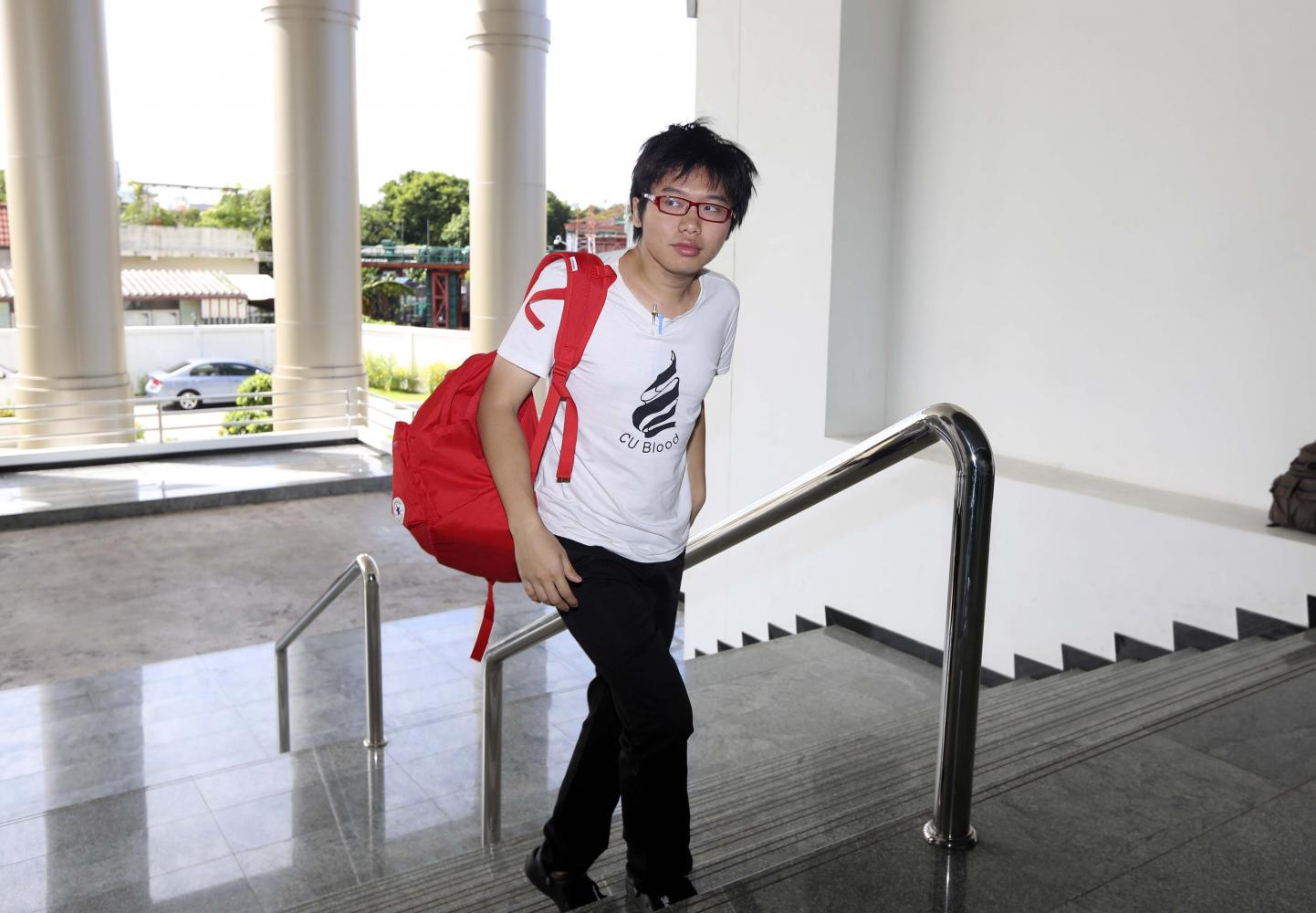
The odds that a young Thai activist would be allowed to make a daring speech in front of the powers-that-be in Thailand, in the same vein as 16-year-old Swedish climate activist Greta Thunberg at the UN climate summit, are not slim but nil. Since the 2014 coup, the ruling regimes and conservative forces have expected young political activists to keep their mouths shut or face trouble. Lately, one such person who has experienced firsthand the bitter consequences of daring to speak out is 23-year-old student activist Netiwit Chotiphatphaisal.
Elected as a youth board member of Amnesty International Thailand in July last year, Mr Netiwit's chance of serving in that capacity has been buried by the Interior Ministry, which refuses to recognise his position. This is one of many methods the ruling regime has used in meting out punishment against Mr Netiwit and many other young dissidents. This suppression must end.
Since the putsch, the political and social activism of Mr Netiwit, now a fourth-year political science student at Chulalongkorn University, has grated on the nerves of conservatives, largely because he has challenged and questioned established norms, including school rules, and opposed the military regime.
Amnesty elected him as a youth board member after he made a speech at the Oslo Freedom Forum in Norway last year. He is supposed to represent youngsters on the organisation's five-member board to drive its human rights work in Thailand.
In August last year, the organisation submitted an application to register its new board with the Department of Provincial Administration (Dopa), as required by law. But Dopa refused to register Mr Netiwit, saying his past "behaviour", which it claimed threatened public order and national security, made him unfit for the position.
But his "inappropriate behaviour" appears to be merely peaceful protests of the same nature that have brought Thunberg global acclaim.
Dopa also cited four criminal charges filed against Mr Netiwit by the police over his protests, which violated a former military regime order. In doing so it has turned a blind eye to the fact that these cases are politically motivated. Common sense should be sufficient to prove he is not a threat to the public.
Dopa also appears to have failed to realise that two of the four charges have been dropped by the court. Even though the other two cases are still ongoing, Mr Netiwit is still presumed innocent by law.
Given that the regime's order has been revoked, the cases will likely be dismissed. This is the logic that Amnesty used in its appeal to have Mr Netiwit registered by Dopa.
But Interior Minister Gen Anupong Paojinda turned down their appeal this week, forcing Amnesty to pick another youth representative to replace Mr Netiwit. Amnesty, however, has pledged to take a case to the Administrative Court next month.
The fiasco shows just how far the state is willing to go when it comes to suppressing those who dare to challenge the status quo.
Amid the rising tide of nationalism and authoritarianism during recent years, bureaucrats like those at Dopa should have remained impartial.
Gen Anupong, meanwhile, is making a mountain out of a molehill in going along with this shameful act of repression.
The ministry should let Mr Netiwit serve on Amnesty's board. And the ruling regime should let go of its bad habit of suppressing peaceful dissidents, especially the young.
